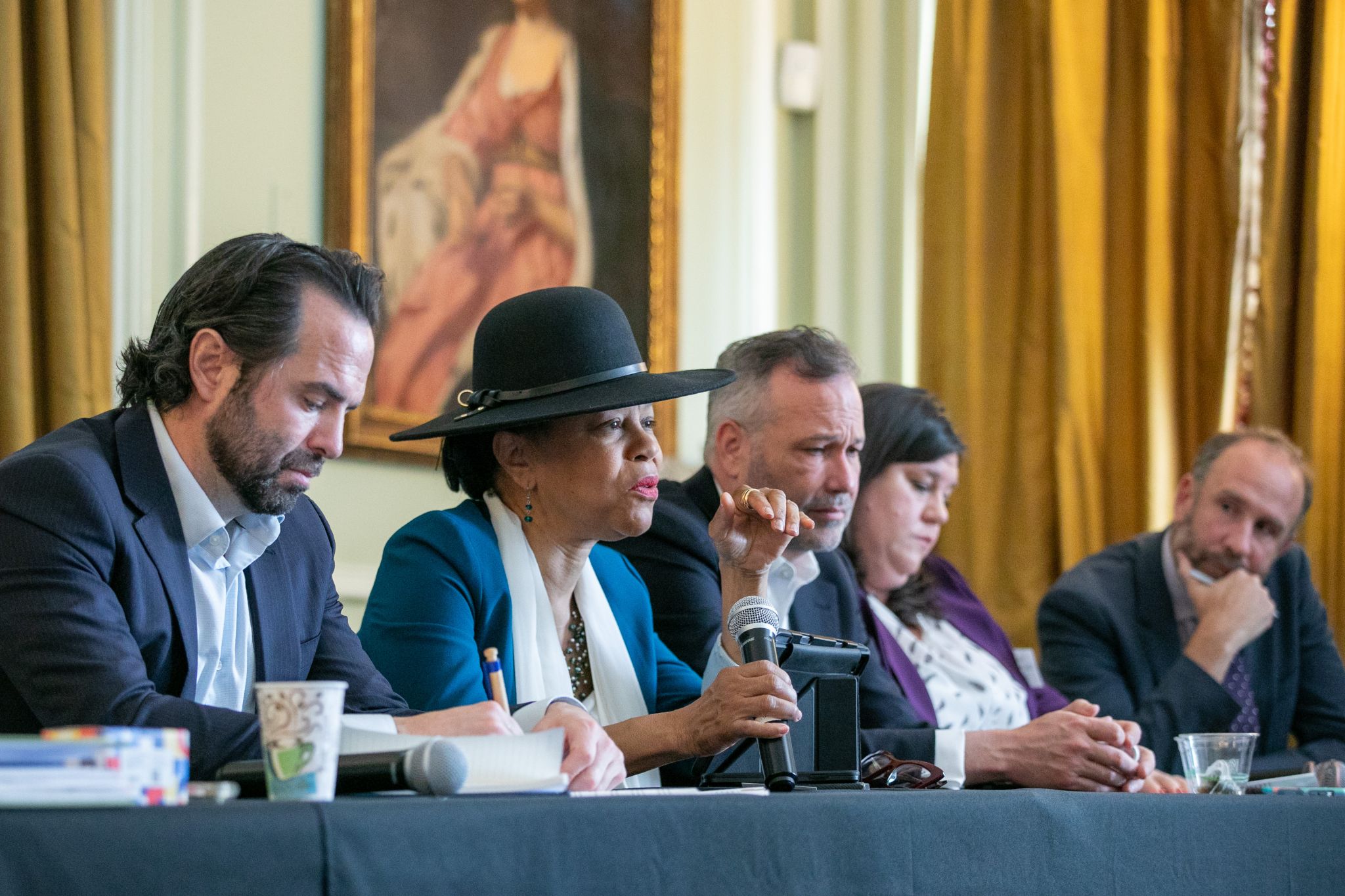
Reimagining humanitarian action: Insights from CrossBoundary at the 2025 World Bank/IMF Spring Meetings
Today’s humanitarian sector faces unprecedented challenges. Escalating global crises, prolonged conflicts, and the impacts of climate change have placed intense pressure on traditional aid models just as donor funding is stagnating or declining.
Today’s humanitarian sector faces unprecedented challenges. Escalating global crises, prolonged conflicts, and the impacts of climate change have placed intense pressure on traditional aid models just as donor funding is stagnating or declining.
These dynamics underscore the urgent need for what many are calling a “Great Humanitarian Reset”: a fundamental rethinking of how humanitarian action is financed, delivered, and sustained. During the 2025 World Bank/IMF Spring Meetings in Washington, D.C., the Overseas Development Institute (ODI) hosted a panel titled “The Future of Global Humanitarian Action”. Moderated by Elizabeth Campbell, Executive Director of ODI Global Washington, the session brought together leading voices from government, policy, and the private sector to address the pressing need for reform in the humanitarian sector amidst declining donor funding and escalating global crises.
Panelists included:
- Freddie Carver, Director of Programme, Humanitarian Policy Group, ODI Global
- James Richardson, Executive Chairman of the Board, The Pompeo Foundation
- Kate Philipps Barrasso, Vice President of Global Policy and Advocacy, Mercy Corps
- H.E. Ketleen Florestal, Minister, Ministry of Planning and External Cooperation, Haiti
- H.E. Dr. Rania Al-Mashat, Minister of Planning, Economic Development & International Cooperation, Egypt
- Jake Cusack, Co-founder and Managing Partner, CrossBoundary Group
CrossBoundary’s insights
Representing CrossBoundary Group, Jake Cusack emphasized the vital but realistic role that private capital can play in humanitarian contexts.
While blended finance and investment facilitation can bring new resources to fragile contexts, Jake was pragmatic about their limitations. He urged for greater recognition that many humanitarian activities provide public goods and thus will always require a baseline of grant-based support.
Jake drew from CrossBoundary’s extensive experience in underserved markets, highlighting how private investment can complement, but not replace, traditional aid. Through programs like the Africa Resilience Investment Accelerator (ARIA), CrossBoundary is helping development finance institutions (DFIs) coordinate investment efforts in fragile African markets.

Jake Cusack, Managing Partner, CrossBoundary Group
Jake also called for reforms to make public sector support more catalytic:
He reiterated the insight at the heart of CrossBoundary’s Investment Facilitation and Investment Facilitation 2.0 approach: strategic public support can unlock private capital even in conflict-affected regions—if it’s deployed intentionally.
Other speakers echoed the need for systemic change
Hon. Minister Ketleen Florestal of Haiti shared how poorly coordinated humanitarian efforts have deepened fragility in Haiti. From her experience running Haiti’s Ministry of Planning and External Cooperation, she highlighted that significant improvements are necessary to make donor and NGO coordination more effective for lasting and sustainable change.
Hon. Minister Dr. Rania Al-Mashat of Egypt highlighted the inefficiencies in humanitarian aid delivery:
“The overhead costs for many of these institutions (development organisations and NGOs) are quite high. The net that goes to the people most in need is often a little bit appalling.”
Freddie Carver emphasized that affected populations must be at the center of reform efforts: “If the changes that are coming are going to have any legitimacy, they have to be built around the perspectives of those people on the receiving end.”
Kate Philipps Barrasso from Mercy Corps pointed out that funding cuts not only threaten immediate assistance but also undermine local capacity: “We need to look at the massive collateral damage of some of these aid cuts through the lens of what it is doing to local capacity and for these local organisations the trust that it’s breaking…”
Meanwhile, James Richardson stressed the erosion of bipartisan support for foreign aid in the United States, cautioning that rebuilding trust around humanitarian assistance will require deep structural reforms.
Blending innovation with core humanitarian principles
The future of humanitarian action demands innovation, but it must remain grounded in protecting human dignity, building resilience, and enabling local ownership.
CrossBoundary’s work shows that with careful design, investment facilitation can be part of a new humanitarian toolkit, one that leverages capital markets to complement, not replace, traditional aid.
As Jake Cusack concluded: “Economic incentives are still present, even in the most fragile settings. Business, investment, and bottom-up solutions must be part of how we think about sustainable humanitarian response.” (25:23)
In a time of profound disruption, partnerships between the public sector, private investors, and local communities offer one of the few true pathways to a more resilient, more equitable humanitarian system.



